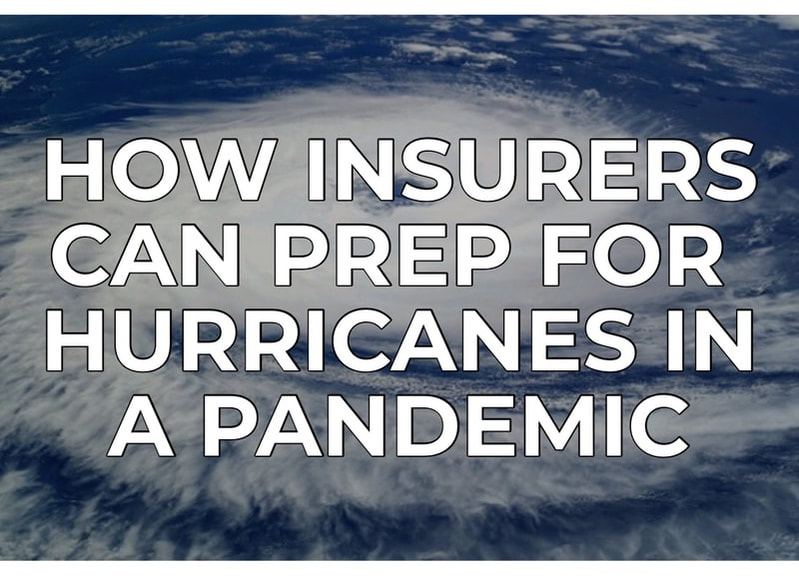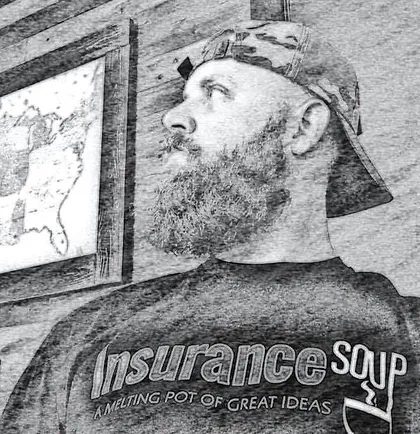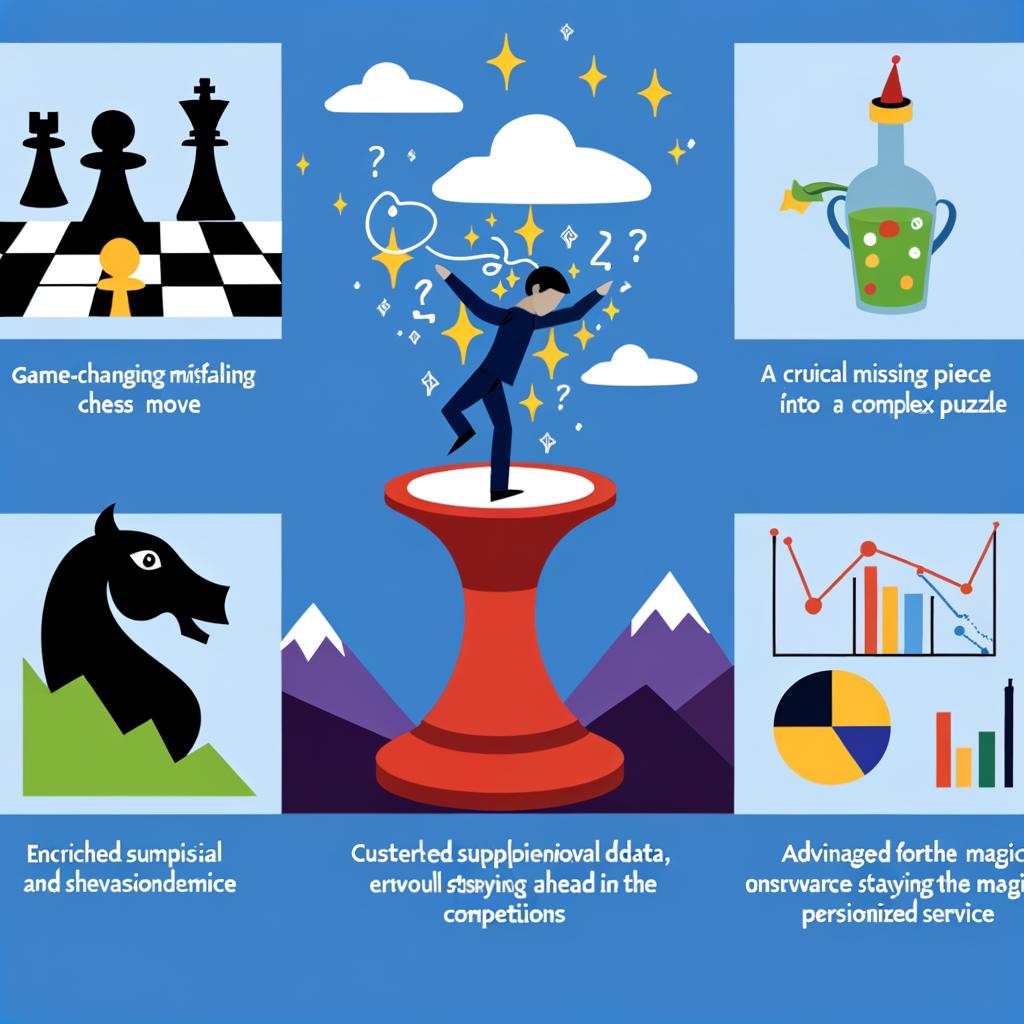With the inception of the 2020 hurricane season and the potential end of the first wave of the COVID-19 pandemic in sight, insurance companies face unique and unprecedented challenges in the event a major hurricane strikes before the conclusion of the pandemic.
How the insurance industry will handle the number of claims that result from a major hurricane is an overarching concern. Currently, the insurance industry is inundated with business interruption and other losses stemming from the COVID-19 pandemic; therefore, it is appropriate to consider what resources will be left to commit to another large catastrophe.
Responding to a major catastrophe requires a highly coordinated effort across all levels of government, and any attempt to coordinate such a response in today's climate would be further complicated by the social distancing guidelines public health officials have put in place in the wake of COVID-19. In light of these challenges, insurers should be planning ahead to ensure appropriate resources are available for the investigation and adjustment of hurricane-related claims.
The Above-Average 2020 Hurricane Forecast
Both the European and American forecast models have predicted an active 2020 hurricane season. For instance, the National Oceanic and Atmospheric Administration's Climate Prediction Center predicted a 60% chance of an above-normal season. Additionally, researchers from Penn State forecast 2020 to be the busiest hurricane season in the last decade, ranging from 15 to 24 storms.
Similarly, researchers from Colorado State University forecast that the 2020 hurricane season will have at least 16 named storms, eight hurricanes and four major hurricanes. Although these are just predictions, researchers from Colorado State project that the chance that at least one major hurricane will make landfall in 2020 along the U.S. coastline is 69%, as compared to an average over the last century of 52%.[1] In comparison, the 2017 hurricane forecast predicted average activity with 11 to 17 named storms of which 5 to 9 could become major hurricanes.[2]
Since 2017, the insured losses for major hurricanes that formed in the Atlantic have totaled approximately $30 billion dollars. In Florida alone, the total estimate of insured losses for Hurricane Irma is approximately $11 billion[3], and the total estimated insured losses for Hurricane Michael is approximately $7 billion.[4] In Texas, the total estimated insured losses for Hurricane Harvey is about $15 billion.[5] In sum, Atlantic hurricane activity in the southern U.S. has caused approximately $30 billion in estimated losses throughout the course of the last three hurricane seasons.
Resource Issues Facing Insurance Carriers
COVID-19 is already forcing some states to rethink their models for hurricane preparedness. Specifically, how will local, state and federal authorities provide shelter for evacuees without further spreading the virus.[6] The Florida Division of Emergency Management is redeveloping plans for evacuations and shelters, while also adding facemasks to the state's stockpile of storm supplies.[7] Additionally, various federal lawmakers have already requested that the Federal Emergency Management Agency provide information on how it plans to balance its response to natural disasters with its COVID-19 response.
Many lawmakers expressed concern that FEMA's resources are already depleted from its response to the COVID-19 crisis, as well as concerns regarding inadequate staffing, sheltering procedures in a time of social distancing, and a global shortage of necessary protective gear, all of which could affect FEMA's ability to respond to a hurricane.
FEMA recently issued a statement that it "has 3,000 employees dedicated to COVID-19 response out of 20,000 employees "ready to respond to other emergencies" and still has $80 billion left in the Stafford Act fund, after allotting more than $5 billion for the coronavirus crisis."[8]
Also, a number of organizations, including FEMA and the Centers for Disease Control and Prevention, have issued guidelines as to how to properly prepare for a hurricane during the COVID-19 pandemic.[9] For example, FEMA stresses that planning during this hurricane will be different because of the need to protect against COVID-19. FEMA further recommends:
Give yourself more time than usual to prepare your emergency food, water and medicine supplies.
Protect yourself and others when filling prescriptions by limiting in-person visits to the pharmacy.
Pay attention to local guidance about updated plans for evacuations and shelters, including potential shelters for your pets.
If you need to evacuate, prepare a go kit with personal items you cannot do without during an emergency. Include items that can help protect you and others from COVID-19, such as hand sanitizer, or bar or liquid soap if not available, and two cloth face coverings for each person. Face covers should not be used by children under the age of 2.
When you check on neighbors and friends, be sure to follow social distancing recommendations.
If you need to go to a disaster shelter, follow CDC recommendations for staying safe and healthy in a public disaster shelter[10] during the COVID-19 pandemic.
In the event of a major hurricane during the COVID-19 pandemic, availability of resources could also prove challenging for insurance carriers. Scarcity of insurance adjusters was an issue for Florida policyholders following Hurricane Irma, because many of the state's adjusters were in Texas working on Hurricane Harvey claims.[11]
Large insurance companies that rely on in-house adjusters positioned all over the country face challenges in getting adjusters on the ground to investigate claims. Travel is complicated in the current environment. Although some hotels and resorts may remain open amid the pandemic, many hotels throughout the U.S. have experienced closures and temporarily ceased operations.
Gov. Ron DeSantis of Florida has issued executive orders requiring travelers flying into Florida from certain states including New York, New Jersey and Connecticut to self-quarantine for two weeks which could also affect response times if a hurricane were to make landfall in Florida. Texas has issued similar travel restrictions requiring travelers to self-quarantine for two weeks if flying or travelling by roadway from certain places.[12]
With travel restrictions like these in place, insurance carriers could be discouraged from bringing out-of-state adjusters into the state after a major hurricane. Scarcity of insurance adjusters can cause frustration among policyholders, as well as a potential delay in the adjustment of insurance claims, which makes litigation more likely.
Whether adjusters are occupied responding to another catastrophe, or travel restrictions limit an adjuster's ability to gain access to a geographical area for an inspection, issues in the initial phase of the adjustment process are likely. Following Hurricane Irma, the lack of available independent adjusters ultimately caused a surge in billing among adjusters that were available. This led to increased costs for insurers. Accordingly, in preparation for hurricane season, it is important that insurers align resources and assign contracts for independent adjusters so that pricing and availability do not become an issue.
Logistical issues in the claims handling process are sure to be pervasive in the event of a major hurricane, especially if the COVID-19 pandemic has not come to a halt. Insurance carriers can get ahead of the curve by allocating resources and having contingency plans in place including emergency response teams and contracts with local vendors.
Court Disruptions Lead to Problems in Litigation
Logistical concerns facing the legal system are also important when considering the issues insurers potentially face in the case of a major hurricane during a pandemic. Florida courts faced challenges handling the vast number of disputes and procuring trial dates following Hurricane Irma.[13] It is reasonable to assume that those same issues could be exacerbated in the event of a major hurricane, especially if the COVID-19 pandemic is still restricting the courts' ability to operate.
The spread of COVID-19 has already caused jury trials to be discontinued, ongoing cases significantly delayed, and a scramble for technological workarounds as most of the legal field works from home.[14] According to the National Center for State Courts, dozens of the 94 federal courts around the U.S. have closed and delayed trials, state court systems have restricted or ended jury trials, and many have suspended in-person proceedings entirely until a time yet to be determined. [15]
Conclusion
During the 2020 hurricane season, insurers would benefit from advanced preparation to allow for the efficient handling of claims to reduce tensions with policyholders already frustrated by COVID-19. Taking all of this into consideration, insurers should brace for a potentially significant hurricane season by addressing the possibility of depleted resources, including the number of available insurance adjusters and social distancing requirements that may make investigation and adjustment of claims difficult following a hurricane. The more insurers consider the potential complications following a hurricane in the wake of COVID-19, the better they will be prepared to respond.
[1] See https://www.wesh.com/article/2020-hurricane-season-forecast/32019427.; See also https://www.wtsp.com/article/weather/hurricane/2020-hurricane-season-florida-atlantic-gulf-of-mexico-penn-state-forecast/67-4a95a174-c16d-49b7-9206-8dbc913a957f.
[2] See https://www.noaa.gov/media-release/above-normal-atlantic-hurricane-season-is-most-likely-year.
[3] https://www.floir.com/Office/HurricaneSeason/HurricaneIrmaClaimsData.aspx.
[4] Seehttps://www.floir.com/Office/HurricaneSeason/HurricaneMichaelClaimsData.aspx.
[5] See https://www.insurancecouncil.org/tdi-releases-harvey-data-call-report/.
[6] See https://www.local10.com/news/local/2020/05/06/florida-makes-plans-for-dealing-with-novel-coronavirus-during-hurricane-season/?__vfz=medium%3Dsharebar.
[7] See https://www.clickorlando.com/news/local/2020/05/11/florida-adds-covid-19-into-its-hurricane-preparations/.
[8] See Justin Coleman, The Hill, "Democratic lawmakers ask how FEMA is planning to balance natural disasters, COVID-19 response" April 20, 2020.
[9] See https://www.cdc.gov/disasters/hurricanes/covid-19/prepare-for-hurricane.html; See also https://www.fema.gov/blog/2020-05-08/preparing-hurricane-season-during-covid-pandemic.
[10] See https://www. https://www.cdc.gov/disasters/hurricanes/covid-19/public-disaster-shelter-during-covid.html.
[11] See https://www.wsj.com/articles/florida-is-short-on-insurance-adjusters-and-that-could-stall-recovery-efforts-1505381401.
[12] Seehttps://ballotpedia.org/Travel_restrictions_issued_by_states_in_response_to_the_coronavirus_(COVID-19)_pandemic,_2020.
[13] See https://www.courthousenews.com/one-year-later-hurricane-irmas-fallout-looms-large-in-florida-courts/.
[14] See https://abcnews.go.com/US/coronavirus-crippling-courts-raising-concerns-civil-liberties-advocates/story?id=69757862.
.png?width=180&height=65&name=Untitled%20design%20(29).png)


